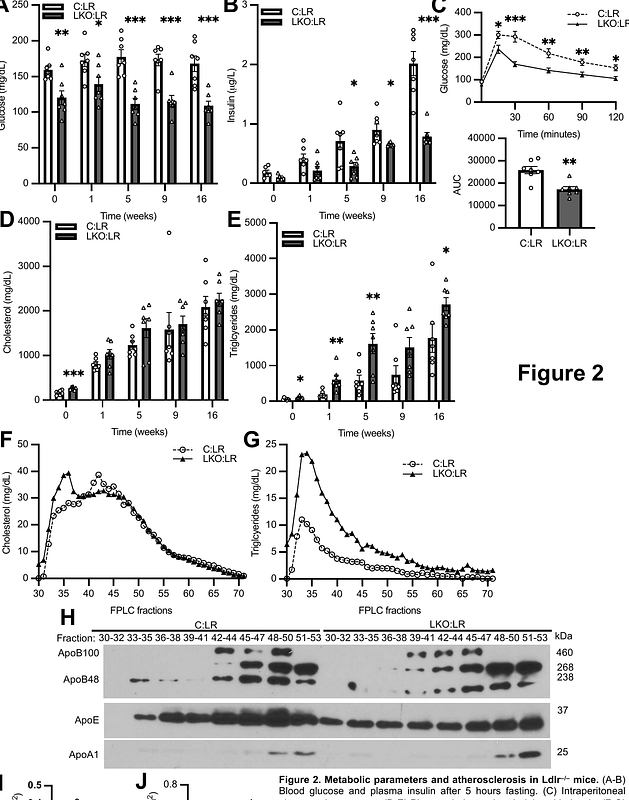Insulin sensitization by hepatic FoxO deletion is insufficient to lower atherosclerosis in mice

Insulin sensitization by hepatic FoxO deletion is insufficient to lower atherosclerosis in mice
Izquierdo, M. C.; Harris, M.; Shanmugarajah, N.; Zhong, K.; Ozcan, L.; Fredman, G.; Haeusler, R. A.
AbstractBackground: Type 2 diabetes is associated with an increased risk of atherosclerotic cardiovascular disease. It has been suggested that insulin resistance underlies this link, possibly by altering the functions of cells in the artery wall. We aimed to test whether improving systemic insulin sensitivity reduces atherosclerosis. Methods: We used mice that are established to have improved systemic insulin sensitivity: those lacking FoxO transcription factors in hepatocytes. Three hepatic FoxO isoforms (FoxO1, FoxO3, and FoxO4) function together to promote hepatic glucose output, and ablating them lowers glucose production, lowers circulating glucose and insulin, and improves systemic insulin sensitivity. We made these mice susceptible to atherosclerosis in two different ways, by injecting them with gain-of-function AAV8.mPcsk9D377Y and by crossing with Ldlr-/- mice. Results: We verified that hepatic FoxO ablation improves systemic insulin sensitivity in these atherosclerotic settings. We observed that FoxO deficiency caused no reductions in atherosclerosis, and in some cases increased atherosclerosis. These phenotypes coincided with large increases in circulating triglycerides in FoxO-ablated mice. Conclusions: These findings suggest that systemic insulin sensitization is insufficient to reduce atherosclerosis.